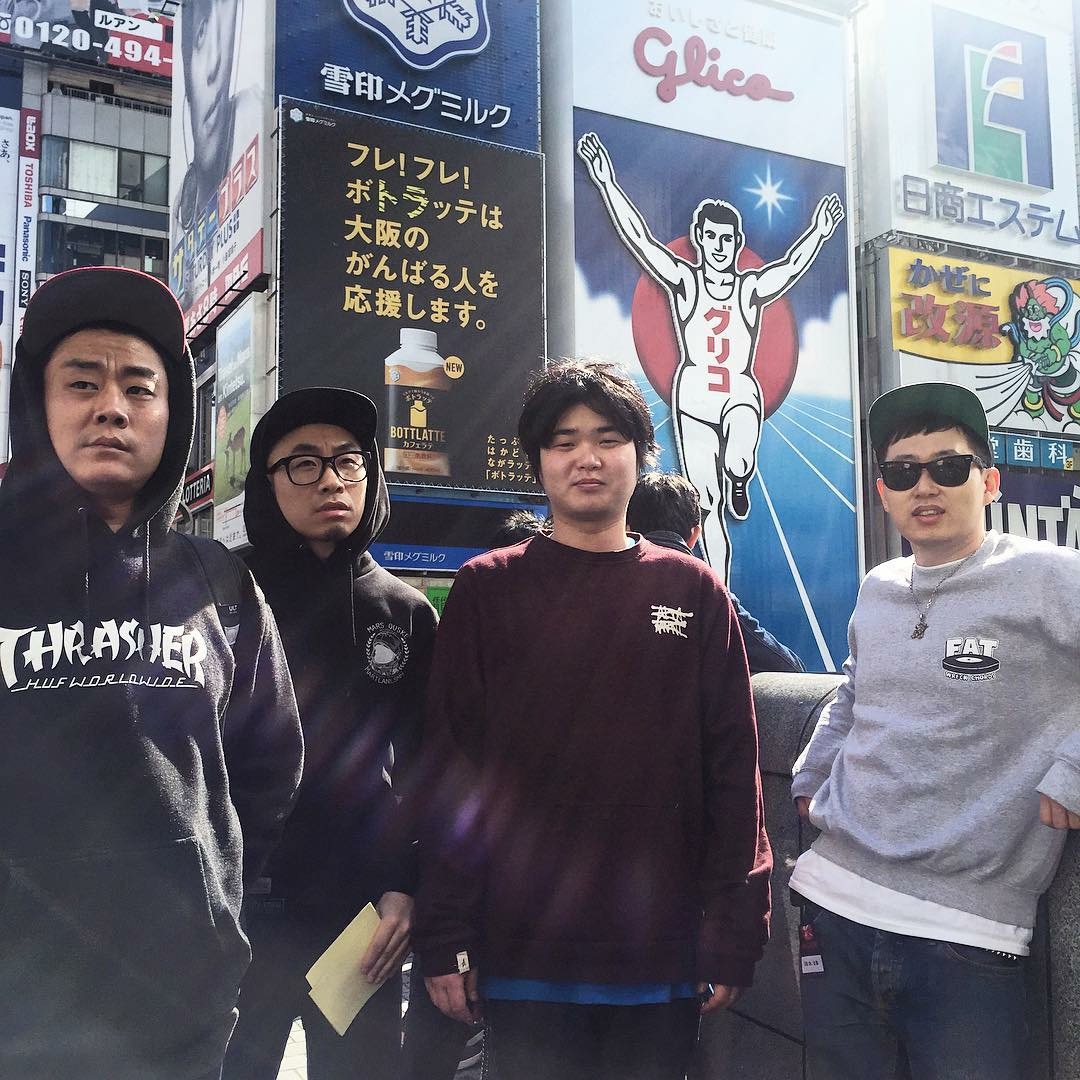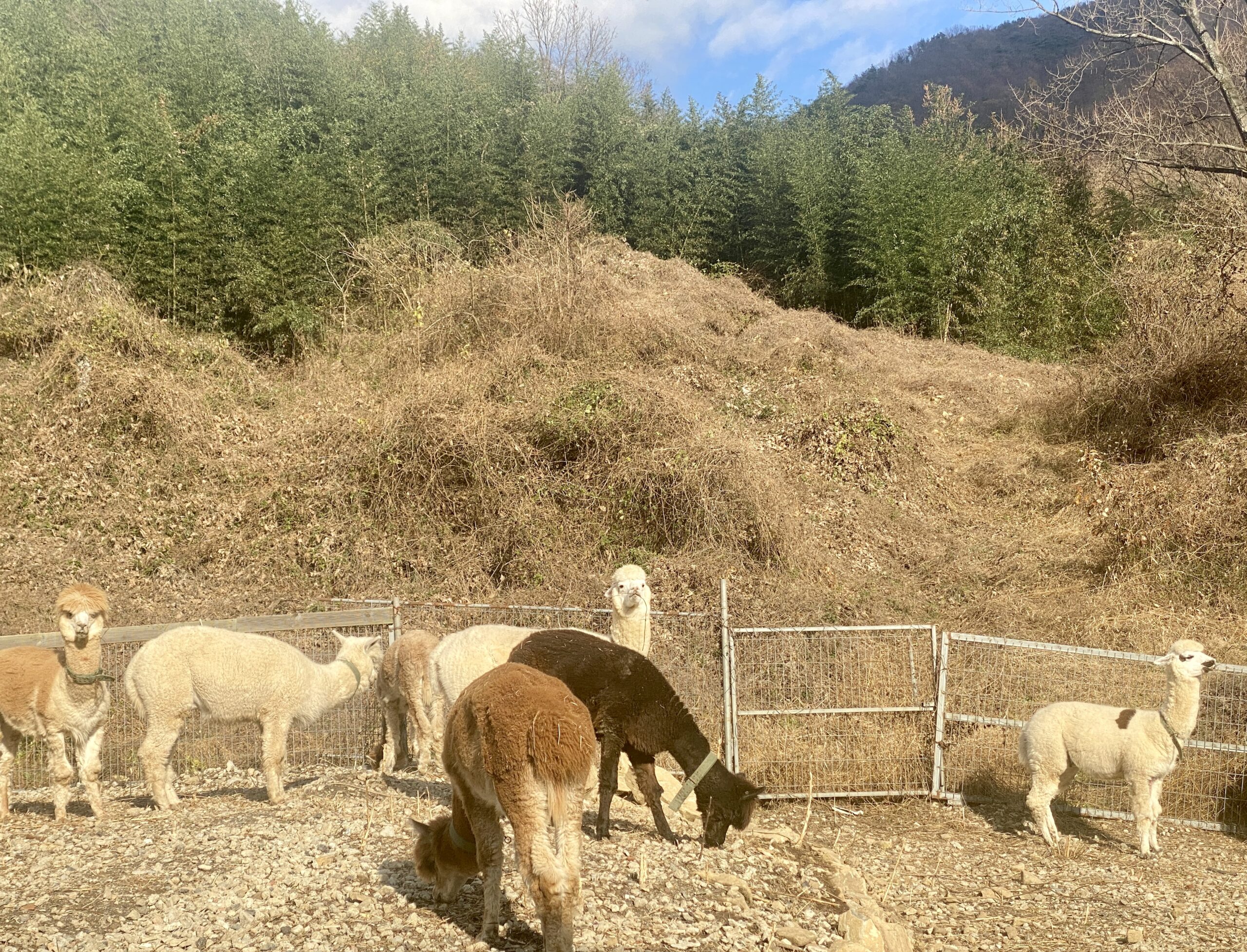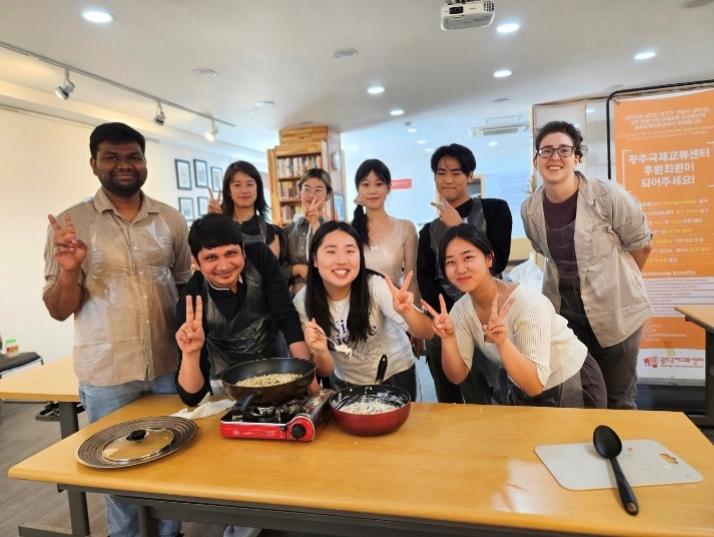Good Afternoon, Vietnam
I can’t decide if I’m not learning anything or I’m learning a lot.
It’s Saturday, November 3, and I have been given the honor of sitting down to a classy lunch at Gwangju’s popular Arirang House with one of the most important men I’ve ever met: Vietnam’s ambassador to South Korea, Tran Trong Toan. With us is a small committee sent to welcome him by the Gwangju International Center (GIC), where the ambassador is scheduled to give a speech. This committee includes two university professors.
To summarize, I’m easily the least culturally sophisticated person at the table –and that’s part of my motivation for showing up today. What sort of conversations do brilliant academics have with each other? Let me tell you, I am learning. So far we’ve heard from the ambassador three quintessentially Vietnamese jokes about drunk people (and they were funny, mind you), an explanation of the idiom “planting the banana tree,” a few factoids about how cultural exchange with China has changed his country’s language, and a few suggestions about Vietnamese food to try. The ambassador has in turn complimented the fish we are eating and inquired about the Korean translations of a few words.
In short, the conversation is strained. The ice just isn’t breaking. There is an overwhelming sense at the table that the topic of conversation simply must be related to Vietnam, South Korea, or the relationship between the two. After all, one doesn’t formally invite an ambassador to lunch so he can talk baseball. But since the words of a diplomat carry exceptional weight, Tran’s statements on current affairs must of necessity be either noncommittal or vaguely positive, and therefore very little fun. It also doesn’t help that I’ve been advised not to ask certain types of questions. Thus our circumscribed conversation gravitates inexorably toward the trading of little nuggets of information that are always politely received with some variation of “Oh, is that so? You don’t say.”
Finally, the problem is compounded by the fact that the ambassador is the private sort. He informs me of this himself, in a perfectly kind manner, during our car ride to the GIC after lunch. Yes, he says, he does indeed have two daughters, but he doesn’t elaborate. Fair enough, I think.
Here’s what I do learn about him: Ambassador Tran was born on a Sunday in October of 1952, in the Ha Tay province just southwest of Hanoi’s city gates. His father Ahn named him Toan, meaning “safe,” on the grounds that there was precious little else in the Red River Delta that had gone by that description for quite some time; the atrocity-laden First Indochina War was still in full swing after over five years, with the Vietnamese Communists and French Union forces dishearteningly stalemated. Tran’s father’s own name meant “peace,” but it was the man’s later soldiering with the Communist army, as well as the enlistment of Tran’s elder brother, that allowed Tran to be safe in more than name. For their service, the Socialist Republic of Vietnam exempted Tran from the draft.
But as it turned out, the state had other uses for him anyway. “I had no idea,” the ambassador recounts with an authentic laugh (we are getting a little friendlier now), “but they were already looking at me while I was in high school.”
Tran’s excellent grades and commitment to the Party convinced the government to send him off to university in the Soviet Union, where he obtained a Master’s in Philosophy and Oriental Studies at Tashkent State. He has lived the life of the career diplomat ever since, steadily working his way up from the junior position of desk officer in his country’s Ministry of Foreign Affairs to headier roles at its embassies in India, Malaysia, and South Korea — and it doesn’t get too much more heady than his current job, fully titled His Excellency, Ambassador Extraordinary and Plenipotentiary.
Even native speakers of English usually need a dictionary to parse that title, so let’s spend a moment on it. The word “extraordinary” may seem flattering, but it actually just means the man’s job is temporary; Vietnam follows the international standard of reassigning its ambassadors every three years. A “plenipotentiary” is a representative in the fullest sense — a person with the power to take any action on behalf of the person being represented, in this case the president of Vietnam. That Tran is a plenipotentiary of Vietnam’s president is signaled by the honorific “His Excellency” before his name, a form of address usually reserved for presidents and governors of territories. The clear implication is that, so far as everyone in South Korea should be concerned, Tran is the president of Vietnam.
Obviously that’s not a responsibility he takes lightly, but it is one with which he’s grown comfortable. Not only has he served in the post for over 2 1/2 years now, but he came to it after having already completed a term as Vietnam’s ambassador to Malaysia, back in 2003. I ask him how much difference there is between his work there and his work here. “There is not so much difference,” he replies. “The paperwork is essentially the same.”
There’s probably a little more of it, though. While Malaysia does employ nearly 130,000 Vietnamese laborers, “Korea is the second biggest foreign investor in Vietnam and Vietnam is the third largest foreign market for Korean investment …Korea is the fourth biggest trade partner of Vietnam and Vietnam is Korea’s ninth largest market for Korean exports [as well as] Korea’s 21st largest import source.” A free trade agreement is currently in the works.
But how much does all of this activity have to do with Gwangju? You might be surprised. Even if Gwangju doesn’t have any sort of official relationship with a “sister city” in Vietnam like Seoul and Busan do, it still has significant ties to the Socialist Republic. Tran notes that Gwangju has taken a leading role in promoting a positive perception of Vietnamese culture among South Koreans.
The first major exhibition of Vietnamese art in South Korea opened in 2010 at the Gwangju Museum of Art. Last year the city organized the first international workshop in Korea dedicated to the life of modern Vietnam’s founder, Ho Chi Minh. When one considers South Korea’s adversarial relationship to that man during his lifetime — his communist beliefs are still considered seditious within the R.O.K. Army — this gesture of goodwill is genuinely impressive.
Moreover, there is a large Vietnamese community in Gwangju comprising Vietnamese workers, students and Vietnamese brides. The ambassador slyly notes that, considering the number of Vietnamese women who now live with their Korean husbands in the countryside of Jeollanamdo, Gwangju will never have a “sister” city in Vietnam. “It will have a mother-in-law.”
But seriously: “We have here [in South Korea] a quite significant number of Korea-Vietnam bi-cultural families which are now around 50,000 families. I reserve a lot of my time and attention to this community as we want them to best able, prosperous and happy.” By his estimate, about three-fourths of Korea-Vietnam marriages now fit that description. His government is trying to improve that figure by, for example, requiring Korean grooms to have some knowledge of Vietnamese language and culture before they can wed. Vietnam’s government has also recently authorized the Vietnamese Women Union to establish counseling centers and classes on Korean culture for Vietnamese women interested in Korean men.
The ambassador is also working hard to sell Vietnam’s business environment.One of the Vietnamese embassy’s duties in South Korea is to promote the idea of investment in Vietnam to Korean businesses, including those in Gwangju.
“Gwangju has five industrial parks and is home to over 1,200 companies,” the ambassador explains. “Vietnam would like to attract investment from those companies with high-tech industries, automobile industry, textile and garment industry, supportive industries, [and the] food processing industry which are active in Gwangju. “We are happy to provide necessary information to Korean companies in Gwangju and to introduce Vietnamese partners for them to do business in Vietnam.”
Pushing past family assistance and economic diplomacy, the ambassador also likes to pay an occasional visit to the Vietnamese community in Gwangju which includes students in Gwangju’s universities. Chonnam National University specifically has an active Vietnamese Student Association (VSA), and many of its members are in the audience when we enter the GIC lecture hall.
At the GIC, Tran delivers his speech. Naturally, His Excellency launches into the same fare I’ve been hearing all day, first noting some of the cultural and historical similarities between South Korea and his homeland, then proceeding to the usual statements about how well the countries’ partnership is progressing. I’m mainly interested in the short Q&A session for audience members, during which they may ask anything they like. How will the ambassador handle a stack of questions that haven’t been vetted for any possible discomfort?
The answer is: exceedingly well. He’s warm. Open. Knowledgeable. He doesn’t speak in statements. When someone asks, “What role does Socialism still play inVietnam?” the ambassador replies with his own personal definition of Socialism: To him, Socialism is the goal of “a democratic, equitable and civilized” country“ of the People, by the People, and for the People” (a clever choice of phrase; he is quoting Ho Chi Minh, who was quoting the U.S. Declaration of Independence). The ambassador then adds that there isn’t much difference in principle between the “socialist-oriented market economy” of today’s Vietnam and the supposed capitalism of countries like the United States.
The answers he gives to the next questions are equally as intelligent and heartfelt. When asked again about the possibility of a sister city in Vietnam for Gwangju, he offers his opinion on what city would be most appropriate (he suggests Huế, Vietnam’s capital in the 19th century). I am enjoying this visit from the ambassador now more than at any point in the day. I feel I understand a little better why Vietnam’s president sent this particular man to be his plenipotentiary. Like most of the other attendees, I’m genuinely disappointed when he soon runs out of time, and when the crowd begins advancing on the ambassador afterward instead of dispersing, I join it. Like them, I want a handshake, perhaps even a picture. It took until the last few minutes of my observation of the man from Ha Tay, but Ambassador Tran has finally connected with me, and that is the skill of a good diplomat.




